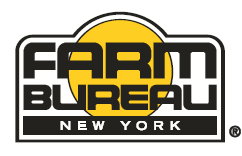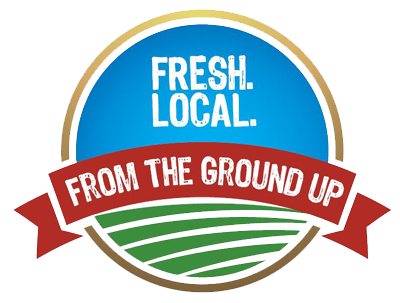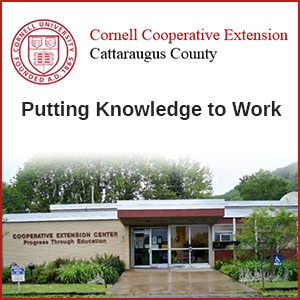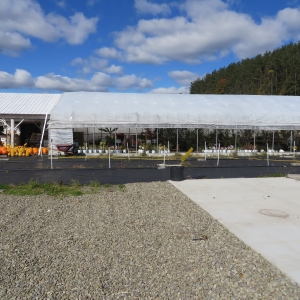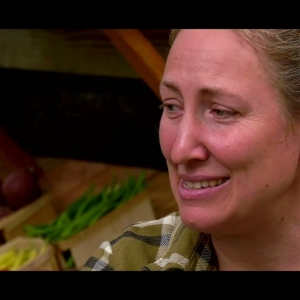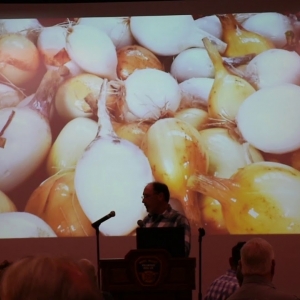Other Ag News:
(Washington, D.C., June 21, 2025) – Today, the National Multi-Agency Coordination Group (NMAC), composed of wildland fire representatives from each wildland fire agency based at the National Interagency Fire Center (NIFC) in Boise, Idaho, raised the national wildland fire preparedness level one step higher to Preparedness Level 3.
(Washington, D.C., June 20, 2025) — Following U.S.
(Edinburg, TX, June 18, 2025) – U.S. Secretary of Agriculture Brooke L. Rollins this morning launched an $8.5 million sterile New World screwworm (NWS) fly dispersal facility in South Texas and announced a sweeping five-pronged plan (PDF, 434 KB) to enhance USDA’s already robust ability to detect, control, and eliminate this pest. These urgent actions are necessary to finish the fight against NWS and protect the United States.
Secretary Rollins Takes Bold Action to Put American Farmers First, Cuts Millions in Woke DEI Funding
(Washington, D.C., June 17, 2025) — U.S. Secretary of Agriculture Brooke L. Rollins announced today that the United States Department of Agriculture (USDA) will terminate more than 145 Diversity, Equity, and Inclusion (DEI) focused awards, totaling a maximum savings of $148.6 million.
(Washington, D.C., June 16, 2025) - Today, U.S. Department of Agriculture Secretary Brooke L. Rollins announced the U.S. Forest Service has posted the final environmental impact statement and draft record of decision for the proposed Resolution Copper Mining Project. These documents, now available on the Tonto National Forest website, represent an important step in advancing President Trump’s goal of emergency and mineral independence by boosting domestic mineral production.
(Washington, D.C., June 16, 2025) – U.S. Secretary of Agriculture Brooke L. Rollins announced American agricultural producers will have greater market access to Thailand and Vietnam and maintained access to Brazil. The Trump Administration continues to break down non-tariff barriers and defend current market access, and these latest actions are some of many wins ahead for American producers. U.S.
Recently, the National Sustainable Agriculture Coalition (NSAC), alongside 100 food, farm, conservation, and rural organizations, delivered a letter to Congressional appropriators urging them to fully fund the Sustainable Agriculture Research and Education Program (SARE) at $60 million in fiscal year (FY) 2026.
SARE was one of NSAC’s first legislative accomplishments over 35 years ago, and to this day, it remains one of our Coalition’s top funding priorities. However, after more than 35 years of proven on-the-ground results, the program has yet to reach its fully authorized funding amount of $60 million. Under current law, SARE is funded at $48 million. In May, the President’s Budget suggested funding SARE at $40 million for FY2026, and last week, the House FY26 Agriculture Appropriations Bill proposed $40 million for SARE, a roughly 16% cut to an already underfunded program.
SARE funding is divided and administered by four regional Administrative Councils that coordinate with four regional host institutions and a National Coordinating Center. The four regional SARE programs (Northeast, Southern, North Central, and Western) manage several regionally based grant programs, including the Research and Education (R&E) grant program, the Professional Development Program (PDP), Farmer and Rancher (F&R) grants, and the Graduate Student Grant Program. SARE’s regional delivery structure ensures that local needs are met and all regions of the country benefit equally. The program’s priority on outreach ensures that SARE research results are disseminated directly to farmers and that practices can consequently be adopted in their fields at a much faster pace than through traditional agricultural research.
For example, a recent impact report from North Central SARE showed that from 2014 to 2024, 8,329 farmers reported meaningful changes, like adopting new practices or reducing inputs, after participating in a NCR-SARE project. That means for each NC SARE project funded, seven farmers made meaningful changes to their operation, and 124 farmers were reached, building new farmer-to-farmer connections. This makes the SARE program one of the most cost effective and administratively efficient competitive research programs within the US Department of Agriculture (USDA).
The current demand for sustainable agriculture solutions far outweighs available resources. According to SARE’s 2023-2024 Biannual Report From the Field, less than 40% of Farmer Rancher Grant proposals were able to receive funding between 2022-2023. Farmers and ranchers have critical insight when it comes to improving their systems, and the increasing demand for farmer-led research continues to outpace federal funding. Increased funding for SARE will play a crucial role in helping SARE’s farmer-driven research keep pace with the growing challenges related to the state of the rural economy, soil health, and competitiveness of American producers.
BackgroundSince 1988, SARE has funded 9,781 farmer-driven research and education initiatives through competitive grant awards totaling nearly $475 million. As the only farmer-driven, sustainable agriculture competitive research grant program offered by the USDA, SARE provides farmers and researchers with vital opportunities to better understand agricultural systems, increase profitability, and build resilience to climate change. SARE-backed initiatives have furthered stewardship of the land and its natural resources by funding research on topics such as soil health management, crop and livestock integration, soil erosion and runoff mitigation, and organic farming practices. In addition to research, many SARE projects also address social and demographic challenges faced by farming communities, including challenges faced by minority and underserved farmers, access to land, challenges for young and beginning farmers, and rural quality of life.
Top 5 States for SARE Funding (1988-2025) StateNumber of SARE AwardsTotal Amount AwardedNew York656$27,195,315California291$19,703,932Minnesota407$17,974,748North Carolina279$17,799,700Pennsylvania410$17,786,287Key Projects Funded by SARE in each Region
North Central SARE, Nebraska
- Brian and Keith Berns combined decades of no-till experience with a background in agriculture and computer science to found Green Cover Seed, now one of the leading cover crop companies in the United States. It all started with a Farmer Rancher grant from NCR-SARE. SARE funding enabled them to scale research into over 80 species and hundreds of seed mix combinations. Their free SmartMix Calculator, developed with farmer input, allows producers to tailor mixes for nitrogen fixation, water use, and livestock grazing. It gives farmers a practical tool to reduce inputs while improving soil health. It is one of the most widely used cover crop selection tools on the internet.
Northeast SARE, New York
Increasing Hudson Valley Farm Viability Through Cooperative Bulk Purchasing
- Letterbox Farm used a Farmer/Rancher grant to research, develop, and pilot a bulk supply purchase program, in which area farmers can source needed inputs at negotiated bulk prices and/or reduced shipping costs. This project generated $21k in savings for the farm community in 2021 and went on to provide a further $39k in cost savings in the following year. 65 farmers participated and, using their two years of bulk order organizing experience, they generated a set of templates and tools for other farmers and service providers to use to replicate their program.
Southern SARE, Arkansas
- The National Center for Appropriate Technology (NCAT), an NSAC member, used an Education grant to develop “Take Your Farm to the Next Level,” a six-part curriculum that covered how to develop business and financial plans, streamline recordkeeping systems, and improve labor management and marketing. The training series was then provided to an in-person group of farmers over the course of six months. 115 farmers participated in this SARE project.
Western SARE, California
Facilitating Food Safety for Small, Sustainable Farms
- Agriculture & Land-Based Training Association (ALBA), an NSAC member, used a SARE grant to educate agriculture professionals working with small, sustainable farmers to efficiently comply with newly adopted food safety standards in reaching growing markets for sustainably grown produce. The project reached over 150 participants with direct training (webinars, presentations, audit shadowing, and technical assistance) and hundreds more with project materials.
As this fiscal year’s appropriations process continues on Capitol Hill in the weeks ahead, NSAC remains a strong supporter of SARE and continues to advocate for growing the program’s research and funding capacity. To learn more about SARE and its impacts, visit the NSAC Grassroots Guide.
The post Support for Farmer-Led Research Hinges on SARE Funding appeared first on National Sustainable Agriculture Coalition.
(Washington, D.C., June 13, 2025) – U.S. Secretary of Agriculture Brooke L. Rollins issued the following statement in support of the Environmental Protection Agency’s (EPA) highest ever volume requirements for American grown biofuels in the Renewable Fuel Standard (RFS):
(Washington, D.C., June 12, 2025) – U.S. Secretary of Agriculture Brooke L. Rollins and U.S. Secretary of the Interior Doug Burgum today joined President Donald J. Trump for the signing of Executive Order Empowering Commonsense Wildfire Prevention and Response, at the White House.
FOR IMMEDIATE RELEASE
Contact: Laura Zaks
National Sustainable Agriculture Coalition
press@sustainableagriculture.net
Comment: Partisan Senate Reconciliation Bill Ends Decades-Long EraWashington, DC, June 12, 2025 – The National Sustainable Agriculture Coalition (NSAC) issued the following comment, attributable to Mike Lavender, NSAC Policy Director, in response to the Senate Agriculture, Nutrition, and Forestry Committee’s title of the Senate’s budget reconciliation bill released on Wednesday evening.
“The story of the Senate reconciliation bill boils down to willful complicity in the death of a full farm bill. The bill delivers hundreds of billions in cuts that will deepen hunger and threaten farmer livelihoods in order to dramatically increase the federal deficit through tax cuts and subsidies available to a select few. A vote for this bill is not a vote for farmers – it’s a vote to abandon them. The Senate bill – which mimics the House version with only minor exceptions – excludes hundreds of programs that support farmers and the communities they call home. Farmers and their communities are not a monolith, and the Senate’s exclusion of farm loans, rural development, new market opportunities, research, and more makes painfully clear a fundamental misunderstanding of rural communities.”
See NSAC’s recent blog post for details on the House Agriculture Committee’s reconciliation bill.
###
About the National Sustainable Agriculture Coalition (NSAC)The National Sustainable Agriculture Coalition is a grassroots alliance that advocates for federal policy reform supporting the long-term social, economic, and environmental sustainability of agriculture, natural resources, and rural communities. Learn more and get involved at: https://sustainableagriculture.net
The post Comment: Partisan Senate Reconciliation Bill Ends Decades-Long Era appeared first on National Sustainable Agriculture Coalition.
Pages
Signup for the Ag Newsletter
Get the freshest farm news, events and updates from in and around Cattaraugus County, NY at least once a month! Go signup!
Other ways to stay connected:
Get Involved in Farming
Resources for Starting a Farm in Cattaraugus County
Profile of Cattaraugus County soils
Agriculture Career Exploration
Questions about farming? Find out Who to Call

